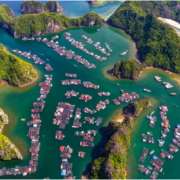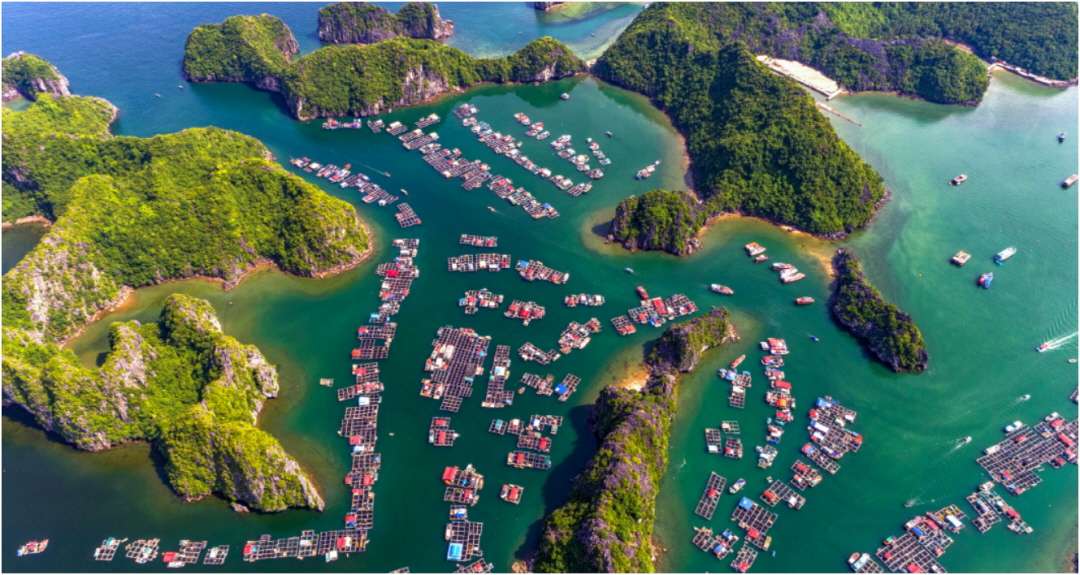Seaweed Farming is Eco-Friendly
South Korea’s Century of Seaweed Research: Leading the World in Sustainable Aquaculture
Introduction
South Korea’s pioneering journey into seaweed research began exactly a century ago in July 1924 in Jeollanam-do Province. From humble beginnings, the nation has evolved into a global leader in the large-scale cultivation of seaweed varieties like Kim is a group of edible seaweeds dried for use as an ingredient in Korean cuisine. (nori), miyeok (wakame), and dashima (kelp). As the world seeks sustainable solutions for food security and environmental protection, South Korea’s expertise in seaweed farming is gaining international recognition.
The Significance of South Korea’s Seaweed Industry
The NASA satellite images of Wando-gun in Jeollanam-do dramatically showcased the country’s expansive seaweed farms, with their geometric patterns stretching across the ocean. NASA highlighted these farms on its Earth Observatory website, noting that seaweed aquaculture is not only a key resource for the future of food and bio-industries but also an environmentally sustainable practice.
Why Seaweed Farming is Eco-Friendly:
- No Need for Freshwater or Fertilizers: Unlike many agricultural practices, seaweed farming thrives without the use of scarce freshwater resources or chemical fertilizers.\n2. Carbon Absorption: Seaweed absorbs carbon dioxide from the atmosphere, playing a vital role in reducing greenhouse gases and combating climate change.\n3. Marine Ecosystem Benefits: Seaweed farms can improve local marine biodiversity and help prevent coastal erosion.
South Korea’s Global Leadership in Seaweed Cultivation:
Thanks to innovative farming techniques and continuous research and investment, South Korea has become a model for sustainable seaweed production. The country produces some of the highest-quality seaweed products in the world, with exports reaching markets in the U.S., Japan, and Europe.
Looking to the Future:
Experts argue that continued research and investment in seaweed cultivation are essential to maximize its potential. Seaweed isn’t just a nutritious superfood; it’s a promising resource for biofuels, bioplastics, and pharmaceuticals. With the global focus on climate change and sustainable food sources, South Korea’s century-long expertise positions it as a critical player in shaping a greener future.
**Sustainability** and environmental protection, highlighting the eco-friendliness of seaweed farming, and how organic dry cleaning and sustainable wet washing methods have a positive impact on the environment
“Just like seaweed farming, which protects the ocean, we chose a laundry method that protects the earth.”
Just as seaweed farming contributes to carbon absorption and the protection of the marine ecosystem, organic dry cleaning can also contribute to environmental protection by reducing the use of toxic chemicals and using eco-friendly solvents.
Raising consumer awareness of sustainability
“Just as seaweed is the core of future food and bio-industry, sustainable laundry is an essential choice for the health of future generations.”
Connecting the advantages of organic laundry (no skin irritation, minimal environmental pollution, etc.) to customers with global trends such as seaweed research
“Seaweed protects the ocean, organic laundry protects the earth”
“Why does sustainable laundry change the future?”
“Protect your clothes and the earth together with an eco-friendly laundry method like seaweed.”
“The eco-friendly value of seaweed farming that NASA has noticed! Joe’s Organic Dry Cleaners protects you and the planet with ocean-clean laundry solutions.”



